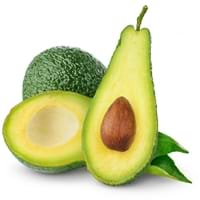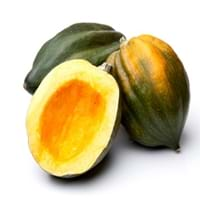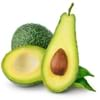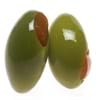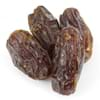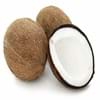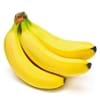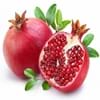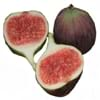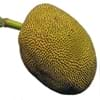Health Benefits
Cancer prevention, Natural detoxification, Osteoporosis prevention, Protection from chronic disease
Anti-inflammatory properties, Arthritis treatment, Regulates Blood Sugar
General Benefits
Boosts immune system, Controls blood pressure, Digestive aid, Improves eye vision, Maintains healthy cholesterol level
Boosts immune system, Controls blood sugar levels, Digestive aid
Skin Benefits
Brightens and lightens complexion, Reduces wrinkles, Skin cleansing, Treatment of dark spots
Nourishes skin, Protects skin from oxidative stress
Hair Benefits
Acts as moisturizer, Good conditioner, Protects hair, Regulates hair growth, Rejuvenates scalp, Remedy for split ends, Shiny hair, Softening mask
Prevents hair loss, Promotes longer and healthier hair, Regulates hair growth
Allergy Symptoms
Abdominal pains, Anaphylaxis, Inflammation, Itching, Latex Allergy, Nasal congestion, Skin Rashes, Swallowing difficulties, Swelling, Upset stomach, Vomiting, Wheezing
Asthma, Red rash, Swelling of mouth, tongue or lips
Side Effects
Allergic reaction, Hypersensitivity, Weight gain
Diarrhoea, Vomiting
Best Time to Eat
Along with meal, As a snack in the late afternoon, Don't consume at night and before bed, Don't eat after meal
Along with meal, As a snack in the late afternoon, Don't eat after meal, Eat the fresh ones, avoid mixing with any other foods, don't eat after meal.
Vitamin B5 (Pantothenic Acid)
Vitamin C (Ascorbic Acid)
Vitamin E (Tocopherole)
Not Available
Vitamin K (Phyllochinone)
Not Available
Lutein+Zeaxanthin
Not Available
Phytosterol
Not Available
Calories in Fresh Fruit with Peel
Calories in Fresh Fruit without Peel
Not Available
Not Available
Calories in Canned Form
Not Available
Type
Berry, Tree fruit, Tropical
Berry
Varieties
Bacon, Fuerte, Gwen, Hass, Lamb Hass, Pinkerton, Reed and Zutano
Bush Table Queen, Heirloom Table Queen, Festival Hybrid, Early Acorn Hybrid, Table Ace, Ebony and Cream of the Crop
Color
Dark green
Dark green, Green-yellow, Orange green
Inside Color
White
Yellow
Origin
Mexico, Central America
Central America, North America, Unknown
Soil Type
Decomposed Granite, Limestone, Sandy loam, Well-aerated
Well-drained
Climatic Conditions
Humid, Without frosts
Cold, Sunny
Facts about
- The oldest living avocado tree is found in University of California and was planted in 1879.
- Avocados can be swapped for butter in Baked Goods Recipes.
- Avocado ripens more quickly with a banana or an apple around.
- It was named as Acorn Squash for its resemblance to a large ribbed acorn.
- It is said that squash was being grown in Mexico as long as 10,000 years ago.
- It was the first food cultivated by native American Indians.
Top Producer
Mexico
China
Other Countries
Chile, China, Colombia, Dominican Republic, Indonesia, Kenya, Mexico, Peru, Rwanda, United States of America
Egypt, India, Iran, Italy, Mexico, Russia, Turkey, Ukraine, United States of America
Top Importer
United States of America
Costa Rica
Top Exporter
Mexico
United States of America
Botanical Name
Persea Americana
Cucurbita Pepo
Synonym
Persea Gratissima
Winter Squash
Subkingdom
Tracheobionta
Tracheobionta
Division
Magnoliophyta
Magnoliophyta
Class
Magnoliopsida
Magnoliopsida
Subclass
Magnollidae
Dillenhidae
Order
Laurales
Cucurbitales
Family
Lauraceae
Cucurbitaceae
Species
P. Americana
Pepo
Generic Group
Laurel
Not Available
Compare Avocado and Acorn squash
It is important compare Avocado and Acorn squash as both the fruits have a different nutritional value. Their comparison can be done on the basis of their vitamin and mineral content, calories, benefits as well as characteristics, making it easier for us to choose the best fruit for our diet. Their general health benefits are as follows:
Avocado Benefits: boosts immune system, controls blood pressure, digestive aid, improves eye vision and maintains healthy cholesterol level.
Acorn squash Benefits: boosts immune system, controls blood sugar levels and digestive aid.
Fruits are also used as a remedy for various hair problems. The hair benefits of Avocado are: acts as moisturizer, good conditioner, protects hair, regulates hair growth, rejuvenates scalp, remedy for split ends, shiny hair and softening mask and hair benefits of Acorn squash are: prevents hair loss, promotes longer and healthier hair and regulates hair growth. Some fruits are known to cause allergic reactions. The allergy symptoms of first fruit are: abdominal pains, anaphylaxis, inflammation, itching, latex allergy, nasal congestion, skin rashes, swallowing difficulties, swelling, upset stomach, vomiting and wheezing and the symptoms of second fruit are: asthma, red rash and swelling of mouth, tongue or lips. Get sorted Avocado vs Acorn squash comparison with the help of fruit comparison tool by fruitvs.com.
